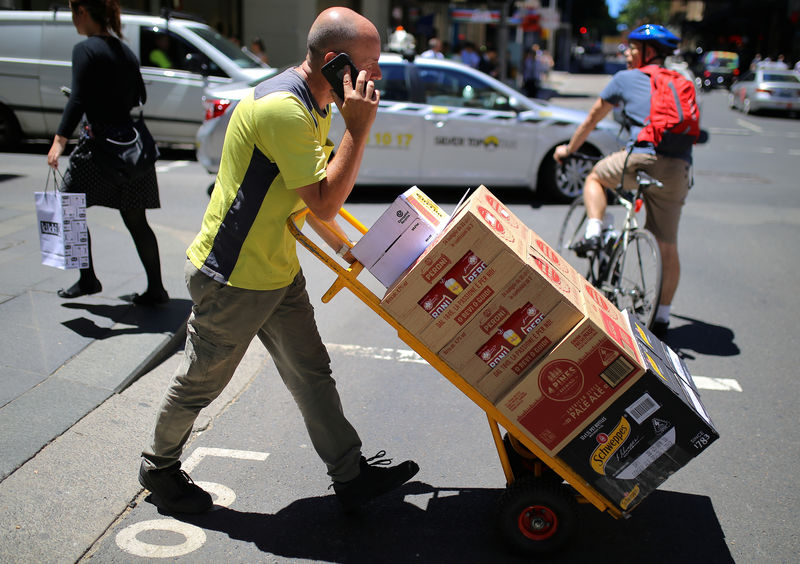* Q1 wage growth 0.5 pct q/q vs 0.6 pct forecast
* Annual wage growth 2.1 pct in Q1, meets expectations
* Private sector wage growth stays near all-time lows
* Healthcare, education best-paying in private sector
*
By Swati Pandey
SYDNEY, May 16 (Reuters) - Australian wages rose a feeble 0.5 percent last quarter and private-sector growth stayed near historic lows, a disappointing outcome that risks putting a lid on spending and restraining already tepid inflation.
The local dollar slipped 0.4 percent to $0.7447 AUD=D4 as the data cemented views that the Reserve Bank of Australia (RBA) will hold rates at a record low 1.50 percent for a prolonged period as it awaits a revival in consumer prices.
Wednesday's figures from the Australian Bureau of Statistics showed the wage price index rose 0.5 percent in the three-months ended March, from the previous quarter, lagging expectations for a 0.6 percent increase.
Growth for the December quarter was also revised lower to show a gain of 0.5 percent.
Annual wage growth climbed 2.1 percent, in-line with forecasts, but only just above the all-time trough of 1.9 percent and barely ahead of consumer price inflation.
Annual wage growth in the private sector stayed stuck at 1.9 percent with not a single industry paying more than 2.8 percent. The strongest growth rates were in healthcare and education, with mining wages up just 1.4 percent - nowhere close to the rate enjoyed during the decade-long mining boom that began early 2000s.
The miserly pace of wage growth is a major reason RBA does not see core inflation reaching the mid-point of its 2 to 3 percent target band during its forecast period ending mid-2020.
On Tuesday, RBA Deputy Governor Guy Debelle said it may take a lower unemployment rate than currently expected to generate a sustained move higher in wage growth. central bank last cut rates to a historical low of 1.5 percent in August 2016, notching up the longest period without a change in modern history. Financial markets are wagering the steady spell could last well into 2019.
